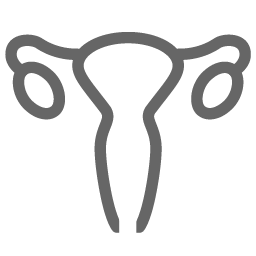Menopausal symptom management – Contraindications
Discuss the risks and benefits of therapies for managing menopausal symptoms (hot flushes, night sweats and vaginal dryness) associated with breast cancer treatments, noting that all forms of systemic menopausal hormonal therapy (MHT) including oestrogen-only, combined oestrogen and progestogen, tibolone, and compounded or bioidentical hormones are contraindicated in women with a personal history of breast cancer.
Menopausal hormonal replacement therapy is contraindicated in women with breast cancer (Level of evidence – moderate)
KCE 2013 - Strong
CA 2016b - B
CA 2016b - C
Systemic menopause hormone therapy (oestrogen-only or combined oestrogen and progestogen) should generally be avoided in women with a history of breast cancer because it may increase the risk of new or recurrent breast cancer. Menopause hormone therapy may be considered in exceptional cases for women with a history of breast cancer with severe, intractable vasomotor symptoms. In these cases, the potential risks and benefits should be discussed with the treatment team, and treatment should only proceed with the informed consent of the woman and at the lowest effective dose for that woman
Compounded hormones (‘bioidentical’ hormones) are not recommended for the management of menopausal symptoms in women with a history of breast cancer because the evidence of their effect is inconsistent and their safety after breast cancer is not known. Note: Compounded hormones are systemically absorbed and may contain high levels of sex steroids which may increase the risk of new or recurrent breast cancer
The desirable effects of an intervention clearly outweigh the undesirable effects (the intervention is to be put into practice), or the undesirable effects of an intervention clearly outweigh the desirable effects (the intervention is not to be put into practice)
Body of evidence can be trusted to guide practice in most situations
Body of evidence provides some support for recommendation(s) but care should be taken in its application
Compounded hormones (‘bioidentical’ hormones) are not recommended for the management of menopausal symptoms in women with a history of breast cancer because the evidence of their effect is inconsistent and their safety after breast cancer is not known
How this guidance was developed
This recommendation was adapted from the KCE 2013 guidelines (Belgium) and the CA 2016 guidelines (Australia). The KCE 2013 recommendation was based on a systematic review of the evidence conducted to January 2010 and was graded ‘strong’ (using GRADE methods) by the source guideline authors. The recommendation from CA 2016 relates to exceptional cases where MHT can be considered and how the benefits and risks should be discussed. It was based on a systematic review conducted to January 2014 and was graded 'B' (using NHMRC methods) by the source guideline authors. The two recommendations were merged, and acknowledgement was made to more recent evidence that a personal history of breast cancer is now considered to be an absolute contraindication to MHT.
The third source recommendation is incorporated in relation to bioidentical hormones also being contraindicated. This CA 2016 recommendation was based on a systematic review conducted to January 2014 and was graded 'C' (using NHMRC methods) by the source guideline authors.
Menopausal symptom management – Contraindications
Discuss the risks and benefits of therapies for managing menopausal symptoms (hot flushes, night sweats and vaginal dryness) associated with breast cancer treatments, noting that all forms of systemic menopausal hormonal therapy (MHT) including oestrogen-only, combined oestrogen and progestogen, tibolone, and compounded or bioidentical hormones are contraindicated in women with a personal history of breast cancer.
This recommendation was adapted from the KCE 2013 guidelines (Belgium) and the CA 2016 guidelines (Australia). The KCE 2013 recommendation was based on a systematic review of the evidence conducted to January 2010 and was graded ‘strong’ (using GRADE methods) by the source guideline authors. The recommendation from CA 2016 relates to exceptional cases where MHT can be considered and how the benefits and risks should be discussed. It was based on a systematic review conducted to January 2014 and was graded 'B' (using NHMRC methods) by the source guideline authors. The two recommendations were merged, and acknowledgement was made to more recent evidence that a personal history of breast cancer is now considered to be an absolute contraindication to MHT.
The third source recommendation is incorporated in relation to bioidentical hormones also being contraindicated. This CA 2016 recommendation was based on a systematic review conducted to January 2014 and was graded 'C' (using NHMRC methods) by the source guideline authors.

